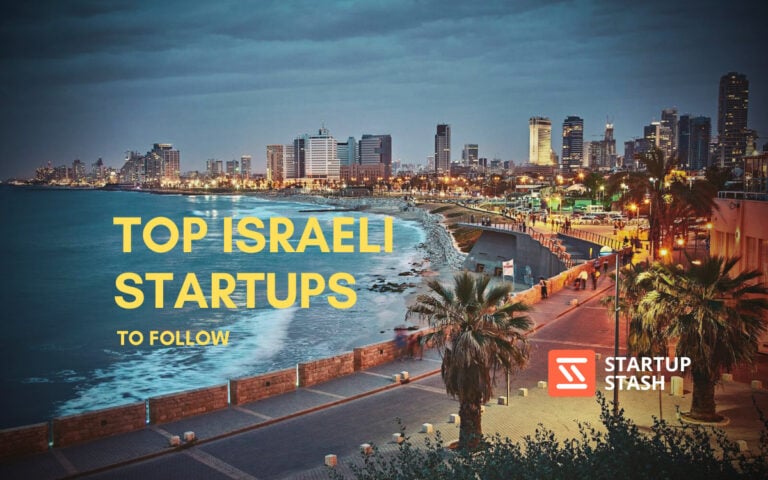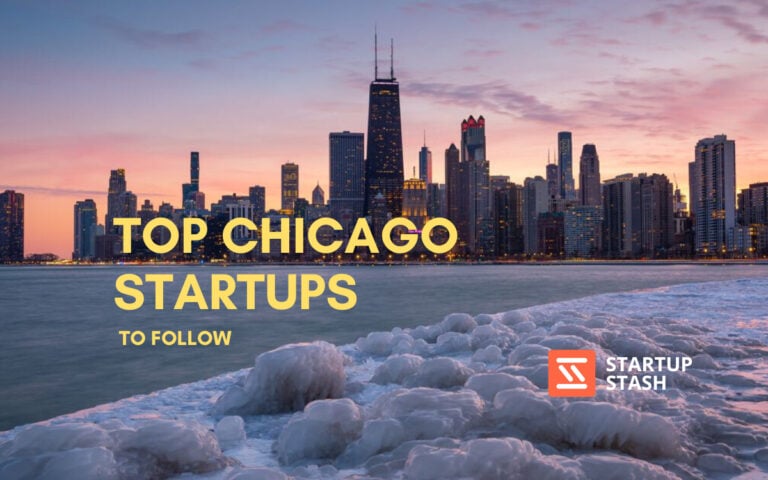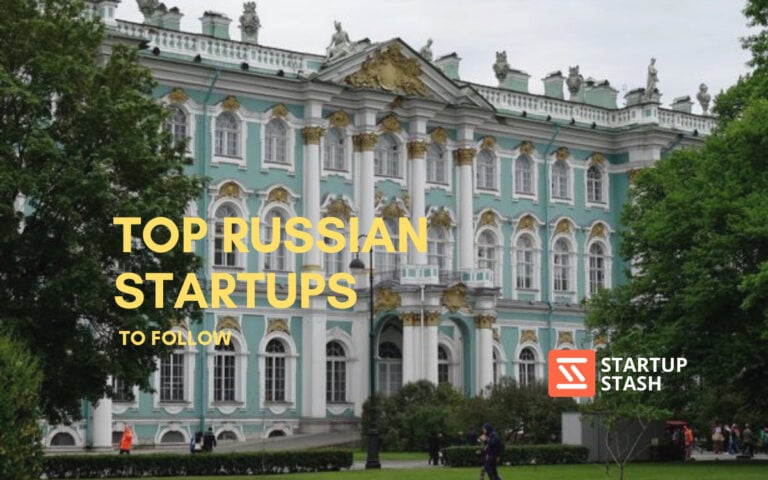Estonia has quickly emerged as a hotspot for startups, earning global recognition for its dynamic and innovative ecosystem. Estonia's startup scene has flourished, with over 1,400 startups operating across various sectors, including fintech, healthtech, and cleantech. The government's proactive initiatives, such as the e-Residency program, have attracted international entrepreneurs and investors, further bolstering Estonia's position as a leading startup hub. It has achieved the first rank in the regional ranking ecosystem of Eastern European startups.
The Estonian government supports the startup ecosystem by offering numerous incentives and funding opportunities. Programs like Startup Estonia and the Estonian Development Fund provide valuable resources, mentorship, and access to a wide network of investors. Estonia boasts a strong venture capital landscape. This supportive environment has enabled top startups to scale quickly and achieve significant milestones.
Estonia's strategic location in Northern Europe and its advanced digital infrastructure make it an ideal launchpad for startups aiming to expand globally. Its tech-savvy population and high internet penetration rate provide a solid foundation for developing and adopting cutting-edge technologies. Estonia's commitment to fostering a collaborative and inclusive startup ecosystem has resulted in numerous successful startups, including unicorns like Bolt and Pipedrive. Let's take a look at some of the thriving Estonian startups.
1. QANplatform
Year Founded: 2019
HQ: Tallinn
Size: 1-50
Founders: Endre Abraham, Johann Polecsak

QANplatform is one of the Estonian startups specializing in quantum-resistant blockchain technology. QANplatform aims to provide strong security against quantum computing threats by incorporating quantum-resistant cryptographic algorithms. It supports the development of smart contracts in multiple programming languages, making it accessible to a wide range of developers. QANplatform features a hybrid blockchain model, offering both private and public blockchains to cater to various enterprise needs.
QANplatform's quantum-resistant Layer 1 blockchain allows developers to build secure Web3 solutions. QANplatform's key features include compatibility with Ethereum's EVM, a no-code smart contract studio, and a cross-signer that ensures post-quantum transaction security.
In 2023, QANplatform secured $17.8 million in funding from MBK Holding to improve its technology and expand its market reach globally. The funding will support further advancements in quantum-resistant security measures and the development of innovative blockchain applications.
2. Katana Cloud Inventory
Year Founded: 2017
HQ: Tallinn, Harju
Size: 51-200
Founders: Kristjan Vilosius

Katana Cloud Inventory is an inventory management platform tailored for small and medium-sized businesses (SMBs). It offers a comprehensive suite of features that streamline operations, optimize inventory levels, and enhance overall efficiency. It includes demand planning, forecasting, and omnichannel analytics features that allow businesses to make data-driven decisions and minimize stockouts. This cloud-based solution integrates easily with various best-in-breed technologies to provide businesses with the tools needed to order, store, and sell physical goods efficiently.
Katana Cloud Inventory supports a diverse portfolio of over 1,500 companies, ranging from hobby makers to multi-million-dollar businesses, collectively generating over $2 billion in sales revenue. Its advanced inventory management technology, including the 2024 RetailTech Breakthrough Award, has earned it recognition. Katana Cloud Inventory has raised a total of $51 million from its recent Series B round in January 2024.
3. DUCKT
Year Founded: 2020
HQ: Tallinn
Size: 1-50
Founders: Evren Yazici, Çağrı Selçuklu, and Goksen Atalay

DUCKT is one of the Estonian startups that provides innovative docking, locking, and charging infrastructure solutions for micro mobility vehicles. DUCKT has developed a universal adaptor compatible with various vehicle models, allowing cities and companies to manage and secure micro mobility fleets effectively. Its patented technology features NFC technology, IoT locking, and connectivity options with major fleet management software providers.
DUCKT's stations are designed to be robust, adaptable, and environmentally friendly. The stations can integrate with existing urban infrastructure and offer solar power options. With over 1,600 online stations across 20 cities globally, DUCKT continues to expand its presence, addressing the challenges of urban mobility and contributing to smarter, greener cities. It has raised over 1 million euros($1.1 million) in funding from three investors in 2021 to improve and expand its operations.
4. Solve.Care
Year Founded: 2017
HQ: Tallinn, Narva maantee
Size: 200+
Founders: Pradeep Goel

Solve.Care is a global healthcare platform leveraging blockchain technology to simplify healthcare processes and improve efficiency. Its primary solutions include Care.Trials, a platform aimed at transforming clinical trial enrollment by ensuring patient privacy and rights through AI and blockchain technologies. Care.Trials facilitates anonymous browsing, pre-screening, and unbiased advocacy to streamline the trial process for both patients and researchers.
Another core component of Solve. Care's mission is the development of a decentralized platform for healthcare administration, utilizing blockchain and smart contracts to reduce inefficiencies and improve care coordination. It aims to connect all stakeholders, automate transactions, and provide personalized information to optimize healthcare delivery. Solve.Care has raised a total sum of $30.2 million in 2023 to expand its reach to various cities across Europe.
5. Arf
Year Founded: 2019
HQ: Zug
Size: 1-50
Founders: Ali Erhat Nalbant

Arf is a regulated liquidity and settlement platform designed for cross-border payment companies. It provides a unique, short-term liquidity solution that eliminates the need for pre-funding. It allows businesses to utilize their capital for growth and expansion. Arf operates under strict compliance standards and offers services only to licensed financial institutions. It uses real-world asset-based digital assets, like stablecoins, to ensure secure and efficient transactions across borders.
Arf's features include:
-
Real-time transaction settlement.
-
A user-friendly infrastructure for global treasury management.
-
Access to always-on treasury services.
Arf allows companies to scale their operations without the constraints typically associated with traditional cross-border payment systems. It has raised over $14.1 million in seed funding in 2022 to improve its platform.
6. Sunly
Year Founded: 2019
HQ: Tallinn
Size: 200+
Founders: Priit Lepasepp

Sunly is one of the Estonian startups focused on developing and operating solar and wind energy projects. One of its significant projects is the construction of the largest solar park in the Baltics, the Risti Solar Park, which will have a capacity of 244 MW and is expected to be completed by early 2026. In collaboration with Metsagrupp, this solar park aims to provide sustainable energy to approximately 55,000 households annually. The use of innovative solar trackers in the park is designed to boost productivity by adjusting the panels according to the sun's position.
Sunly's broader strategy includes the development of hybrid energy parks that combine various types of electricity generation and storage. This approach maximizes energy production and supports the local community by contributing to regional development funds and offering more affordable electricity. Sunly has raised over 296 million euros in 2023 to implement its solar energy projects across various cities.
7. Salv
Year Founded: 2018
HQ: Tallinn, Harjumaa
Size: 51-200
Founders: Taavi Tamkivi

Salv is among the very few Estonian startups specializing in regtech solutions for financial crime prevention. It has developed Salv Bridge, the world's first real-time collaborative crime-fighting platform, which allows financial institutions to share information and fight fraud collectively. Its fully GDPR-compliant platform facilitates secure and effective data exchange to solve fraud cases quickly.
Salv's tool set includes advanced AML functionalities, allowing financial services companies to identify and prioritize suspicious activities in real time. The collaborative aspect of Salv Bridge is a key feature, leveraging the collective intelligence of network members to adapt to evolving threats and improve crime-fighting efficiency. Salv has secured significant funding of $12.4 million, including a recent $4.3 million seed round led by ffVC and G+D Ventures to expand its capabilities and market reach.
8. CINDX
Year Founded: 2017
HQ: Tallinn
Size: 51-200
Founders: Krestina Kasparowa

CINDX is one of the Estonian startups offering a blockchain-powered investment platform to democratize access to professional asset management services. CINDX's platform allows users to invest in various financial instruments while leveraging the expertise of experienced traders and portfolio managers. It offers automated trading strategies executed by professional traders and from which users can choose. Automated trading strategies allow investors to benefit from expert trading tactics without needing in-depth market knowledge.
CINDX is designed to be user-friendly, making it accessible to both novice and experienced investors. Users can start investing with relatively low amounts, broadening the accessibility of professional investment services. In 2021, CINDX secured $3.9 million in funding to support its growth and development, aiming to expand its user base and improve its platform capabilities.
9. Coinmetro
Year Founded: 2017
HQ: Tallinn
Size: 200+
Founders: Kevin Murcko

Coinmetro is another of the innovative fintech Estonian startups that aims to bridge the gap between traditional finance and blockchain technology. As an all-in-one tokenized exchange platform, Coinmetro simplifies the trading of cryptocurrencies, offering a unique financial ecosystem that caters to both beginners and experienced traders. By integrating blockchain and digital assets into its platform, Coinmetro offers a smooth and secure trading experience.
One of Coinmetro's standout features is its commitment to providing a comprehensive suite of financial tools. Its platform includes a crypto exchange, a wallet, and various investment opportunities, making it a versatile solution for users looking to diversify their portfolios. Coinmetro prioritizes user education and support, offering extensive resources to help traders make informed decisions. It secured 25 million euros ($27.5 million) in its most recent funding round in 2022.
10. BotGuard OÜ
Year Founded: 2019
HQ: Tallinn
Size: 1-50
Founders: Nik Rozenberg and Denis Prochko

BotGuard OÜ is one of the Estonian startups focusing on mitigating malicious bots and protecting websites from online threats. BotGuard has developed a state-of-the-art, AI-powered cloud solution that helps website owners manage web traffic, reduce costs, and secure their infrastructure. Its platform is designed to be easy to implement and scalable, providing powerful protection for organizations of all sizes. BotGuard's features include instant website protection and GateKeeper Cloud Protection, both aimed at defending against malicious bots, crawlers, and scrapers.
By using AI and automation, BotGuard ensures efficient and cost-effective web security, making it accessible to small and medium-sized enterprises (SMEs). It prides itself on its flexible and user-friendly approach, allowing web hosting providers to offer their clients comprehensive control over web traffic and protection from evolving threats. BotGuard operates globally, with clients in over 30 countries, and has raised 12.5 million euros ($13.75 million) in Series A funding led by MMC Ventures in 2024 to expand its operations.
11. Stargate Hydrogen
Year Founded: 2021
HQ: Lasnamäe, Harju
Size: 51-200
Founders: Marko Virkebau

Stargate Hydrogen is one of the Estonian startups in the green hydrogen sector. It has developed a unique electrolyzer technology that uses ceramic-based catalyst materials instead of precious metals to reduce the cost of green hydrogen production to just €1 per kilogram. This innovative approach enhances the reliability of alkaline technology and incorporates insights from lithium-ion battery advancements. Its flagship product, the Stellar 100, can produce up to 100Nm3/h of green hydrogen, equivalent to powering a car for 1,000 kilometers every hour.
Stargate Hydrogen recently raised 52.7 million euros ($57.97 million) in seed funding, led by UG Investments and supported by the EU's IPCEI framework for hydrogen technologies. This funding will help scale its patented electrolyzer technology and expand its IP portfolio, which covers materials, electrodes, stack, and control systems. Notably, Taavi Madiberk, founder of Skeleton Technologies, has joined Stargate Hydrogen as Non-Executive Chairman, bringing valuable expertise in deep-tech advancements to support the company's growth and strategic direction.
12. Kipwise
Year Founded: 2018
HQ: Tallinn
Size: 1-50
Founders: Amanda Wong, Charlie Mak, Kwun Lok Ng

Kipwise is a collaborative knowledge management platform designed to help teams build and maintain a company wiki efficiently. It offers features like a real-time collaborative editor, powerful search functionalities integrated with tools like Slack and browser extensions, and AI suggestions that automatically deliver relevant knowledge. Kipwise also includes a Q&A flow to organically grow the knowledge base, mandatory reads for important information, and analytics to identify knowledge gaps.
Kipwise supports various use cases, including employee onboarding, product enablement, and customer support, making it a versatile tool for improving team communication and knowledge sharing. It has raised a total of $436.1K from a seed round in March 2020.
13. Yummy
Year Founded: 2020
HQ: Tallinn
Size: 200+
Founders: Karl Paadam and Martin Salo

Yummy is one of the many Estonian startups in the F&B industry. It began operations in Finland in 2017 and expanded to Estonia in 2020 under the Clean Kitchen brand. It specializes in meal-kit services, aiming to simplify meal planning and grocery shopping while promoting healthy eating and reducing food waste. Yummy provides customers with personalized recipes and pre-portioned ingredients, making it easier to cook healthy meals at home without the hassle of traditional grocery shopping.
Yummy's innovative approach to meal preparation not only saves time and money for its customers but also encourages sustainable eating habits. Yummy is expanding into new markets as part of its growth strategy, and it plans to launch its services in Poland next. This expansion reflects Yummy's commitment to bringing convenient, healthy, and eco-friendly meal solutions to a broader audience. It has raised over 3.4 million euros ($3.7 million) in its pre-seed round.
14. Co-one
Year Founded: 2021
HQ: Tallinn
Size: 1-50
Founders: Ataberk Arman Kayha and Mert Menekse

Co-one is among the very few Estonian startups focused on improving the capabilities of Large Language Models (LLMs) through customized dataset generation. Its expertise lies in creating tailored datasets that are highly relevant, diverse, and accurate, ensuring that the LLMs they support are continuously learning and improving. Its clients can access curated datasets optimized for their specific needs. Co-one's approach ensures that the data fueling these models is of the highest quality, which is crucial for developing advanced AI applications.
Co-one's solutions cater to a wide range of industries, helping organizations harness the full potential of their AI investments. It has raised a total funding of $876.4K in a seed round in 2023. The money will help it improve the platform and provide a better experience for its clients.
15. Binalyze
Year Founded: 2018
HQ: Tallinn
Size: 51-200
Founders: Emre Tinaztepe

Binalyze is one of the only Estonian startups specializing in Digital Forensics and Incident Response (DFIR). It aims to revolutionize how cyber threats are investigated and managed. Binalyze's flagship product, Binalyze AIR, is designed to dramatically reduce the time required for digital forensic investigations from an industry average of 26.1 days to just a few hours. It offers advanced automation, multi-platform support, and comprehensive forensic visibility, allowing enterprises and managed security services providers (MSSPs) to conduct more efficient incident response operations.
Recently, Binalyze secured $19 million in Series A funding led by Molten Ventures, with participation from Earlybird Digital East, OpenOcean, Cisco Investments, Citi Ventures, and Deutsche Bank Corporate Venture Capital. Its total funding amounted to $30.8 million. This funding will help Binalyze improve its platform by integrating Artificial Intelligence and Machine Learning into its processes and expanding its global market presence. With this investment, Binalyze plans to launch the Binalyze AIR 4.0 and its new Investigation Hub, allowing security analysts to investigate hundreds of devices from a single dashboard.
FAQs
What are the strongest industries in Estonia?
The strongest industries in Estonia include Information Technology, FinTech, and CleanTech. The IT sector, particularly cybersecurity, has grown significantly due to Estonia's advanced digital infrastructure. FinTech is also thriving, with companies like Wise and Veriff leading the way. Additionally, CleanTech is gaining momentum, driven by the country's commitment to green technologies.
What is the average investment in the startup industry in Estonia?
The average investment in the Estonian startup industry varies widely but has been substantial in recent years. In 2023, significant funding rounds were reported, with companies like Koos and Stargate Hydrogen Solutions raising millions of euros each. The average investment size often ranges between €2 million to €10 million per startup, reflecting a healthy venture capital ecosystem. In the first quarter of 2024, the turnover generated by Estonian startups reached 817.4 million euros, reflecting a 10% increase compared to 743.8 million euros in the same period in 2023.
How many startups are there in Estonia?
As of 2024, there are over 1,400 Estonian startups. This startup ecosystem is supported by favorable government policies, such as the Estonian Startup Visa program, which attracts international talent and entrepreneurs to the country.
How fast is the startup industry growing in Estonia?
In 2024, Estonian startups experienced growth, climbing two positions from the previous year and surpassing China in the rankings. The Estonian startup industry is growing rapidly, with a notable 36% increase in employment within the sector. The total turnover generated by Estonian startups also saw a significant rise in the first quarter of 2024.


